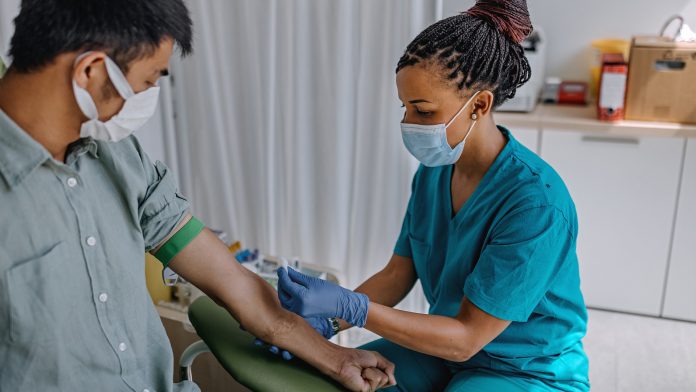
New WHO guidelines recommend countries implement cabotegravir into their HIV prevention strategy.
The World Health Organization (WHO) has released new guidelines for cabotegravir (CAB-LA) and its use as pre-exposure prophylaxis (PrEP) for HIV. The guidelines call upon countries to implement this prevention method for those at a higher risk of HIV infection.
HIV prevention is critical in vulnerable countries. However, efforts to mitigate the risk have been impeded. The latest figures show 1.5 million new infections in 2021 – the same as in 2020. Furthermore, there were 4,000 infections every day in 2021, with key populations, such as sex workers, people in prison, and those who inject drugs and their sexual partners account for 70% of HIV infections.
“Long-acting cabotegravir is a safe and highly effective HIV prevention tool but is not yet available outside study settings,” said Dr Meg Doherty, Director of WHO’s Global HIV, Hepatitis and Sexually Transmitted Infections Programmes. “We hope these new guidelines will help accelerate country efforts to start to plan and deliver CAB-LA alongside other HIV prevention options, including oral PrEP and the dapivirine vaginal ring.”
What is cabotegravir (CAB-LA)?
Cabotegravir is an intramuscular injectable, long-acting form of PrEP which is administered with two injections four weeks apart, followed by injections every eight weeks.
Two randomised controlled trials, HPTN 083 and HPTN 084, have demonstrated that the injection is safe and highly effective in cisgender women, cisgender men who have sex with men, and transgender women who have sex with men. Additionally, the trials revealed a 79% relative reduction in HIV risk compared with oral PrEP.
In a recent press conference, WHO launched a new coalition to accelerate global access to cabotegravir. WHO, Unitaid, UNAIDS, and The Global Fund have joined together to identify interventions required to improve access to cabotegravir, establish financing and procurement for the drug, provide implementation support to global HIV prevention programmes and issue policy guidance.
“To achieve UN prevention goals, we must push for rapid, equitable access to all effective prevention tools, including long-acting PrEP,” said Rachel Baggaley, Lead of the Testing, Prevention and Populations Team at Global HIV, Hepatitis and STI Programmes at WHO. “That means overcoming critical barriers in low- and middle-income countries, including implementation challenges and costs.”
Implementing new strategies to prevent HIV
Within the guidelines, WHO outlined evidence-based strategies to increase cabotegravir access and uptake, including:
- WHO will support countries and partners to use cabotegravir in HIV prevention programmes;
- WHO will work with Unitaid and other partners to develop implementation science projects to clarify safety issues and challenges and understand patient’s preferences for HIV prevention methods, including cabotegravir;
- WHO will work with countries, communities and donors, including The Global Fund, PEPFAR, and the Bill & Melinda Gates Foundation, to support the inclusion of cabotegravir in their HIV strategies and to provide scientific support and monitoring programmes so the injectable can be executed effectively;
- THE WHO Global PrEP Network will host webinars to provide information for relevant stakeholders; and
- In April 2022, cabotegravir was added to WHO’s list of Expressions of interest for evaluation for prequalification, and WHO is working with countries on regulatory approval.
WHO will continue to support oral and injectable prevention options for HIV. Cabotegravir provides a new option for patients and should be offered alongside oral PrEP.

























